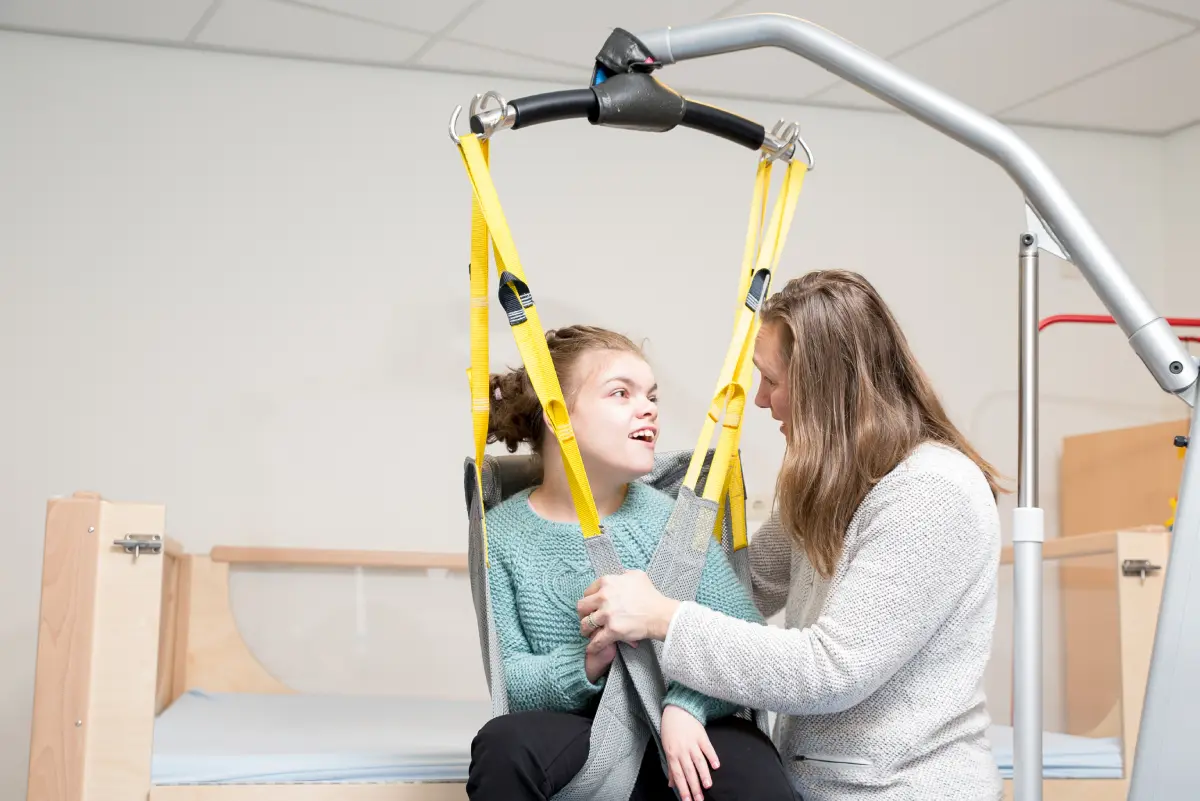Motor neurone disease (MND), also known as amyotrophic lateral sclerosis (ALS) or Lou Gehrig’s disease, is a progressive and debilitating neurological condition that affects the nerve cells responsible for controlling voluntary muscle movements.

As these motor neurons degenerate and die, individuals with MND experience gradual muscle weakness, paralysis, and eventually, respiratory failure, impacting their ability to walk, speak, swallow, and breathe. Despite ongoing research efforts, there is currently no cure for MND, making early detection, symptom management, and supportive care essential in improving quality of life and prolonging survival.
Understanding the complexities of motor neurone disease is crucial for individuals, caregivers, and healthcare providers to provide informed support and optimise treatment strategies for those affected by this challenging condition.

What are the Main Stages of MND
Motor neurone disease progresses through distinct stages, each presenting specific symptoms and challenges. The early stage typically involves subtle changes in muscle strength and coordination, while the middle stage sees more pronounced weakness and mobility limitations.
In the late stage, individuals may experience severe muscle paralysis and respiratory difficulties. Understanding these stages is vital for tailoring care and support to meet the evolving needs of individuals with MND, ensuring optimal management and quality of life throughout the disease course.

MND Progression Stages
Beginning Stages of Motor Neurone Disease (MND)
Stage one of MND marks the early phase of the condition, characterised by subtle changes in muscle strength and coordination. Individuals may notice symptoms such as muscle weakness, twitching, or cramping, typically affecting one limb or a specific muscle group.
These symptoms may initially be mild and intermittent, often mistaken for normal aging or fatigue. Despite these early signs, individuals in stage one of MND can generally maintain independence in daily activities and may continue working or participating in hobbies without significant limitations. Early intervention during this stage is crucial for maximising treatment effectiveness and slowing disease progression.
Stage Two of Motor Neurone Disease (MND)
Stage two of MND represents a progression of symptoms from the initial mild changes observed in stage one. In stage two, muscle weakness becomes more pronounced and widespread, affecting multiple limbs and muscle groups.
Individuals may experience difficulty with tasks requiring fine motor control, such as buttoning a shirt or holding utensils. Walking and balance may also be affected, leading to increased reliance on mobility aids like canes or walkers.
While individuals in stage two of MND may still retain some level of independence in daily activities, they may begin to encounter challenges with mobility and self-care tasks. Despite these limitations, cognitive function typically remains intact, allowing individuals to actively engage in decision-making and maintain social connections.
Stage Three of Motor Neurone Disease (MND)
Stage three of MND marks a significant progression of symptoms and functional decline compared to earlier stages. In stage three, muscle weakness becomes severe and pervasive, affecting almost all muscle groups throughout the body.
Individuals may experience profound difficulty with mobility, requiring assistance with walking or transferring between positions. Fine motor skills are greatly impaired, making tasks like dressing, grooming, and eating increasingly challenging. Speech may also be significantly affected, with individuals experiencing slurred or unintelligible speech patterns. Swallowing difficulties may arise, increasing the risk of choking or aspiration.
Despite these profound physical limitations, cognitive function typically remains intact in stage three of MND, allowing individuals to maintain awareness and participate in decision-making.

Last Stages of Motor Neurone Disease
Beyond stage three of MND, individuals may progress through further stages of functional decline as the disease continues to advance. These later stages are characterised by increasingly severe muscle weakness, paralysis, and loss of functional independence.
Stage Four of Motor Neurone Disease (MND)
In this stage, individuals experience significant limitations in mobility and may require wheelchair assistance for mobility. Speech and swallowing difficulties worsen, requiring the use of assistive communication devices and modified diets to prevent aspiration.
Stage Five of Motor Neurone Disease (MND)
The most advanced stage of MND, individuals in stage five are largely or completely immobile, with paralysis affecting most muscles of the body. They require full-time assistance with all activities of daily living, including personal care tasks such as bathing, dressing, and feeding. Speech may be severely impaired or lost entirely, necessitating alternative communication methods such as eye gaze devices or communication boards. Swallowing difficulties increases the risk of malnutrition, dehydration, and aspiration pneumonia.
Care in the Last Stages of MND
Throughout these later stages of MND, individuals remain mentally alert and cognitively intact, despite the profound physical limitations. Palliative care becomes increasingly important during this time to manage symptoms, provide comfort, and support the individual and their loved ones through the end-of-life process.
The duration of the last stage of MND varies widely, ranging from several months to several years. Progression is unpredictable, with periods of stability interspersed with rapid decline. Palliative care is crucial to manage symptoms and provide comfort.
Advanced care and discussions about end-of-life wishes are essential to ensure that support aligns with the individual’s preferences and values. Overall, the progression of MND varies among individuals, and the specific experiences in the later stages depend on factors such as disease subtype, individual health status, and available support and interventions.
If you are searching for a MND care provider with expertise in managing symptoms, promoting independence and offering guidance on advanced care planning Aspire is for you. Click below to learn more about how Aspire UK can help you with your MND care needs.






